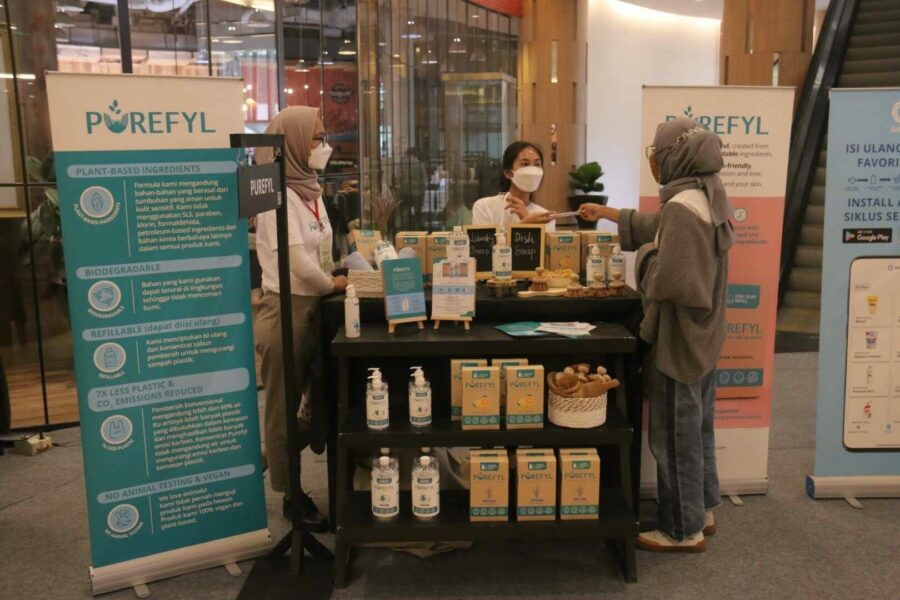Indonesia
With much of Indonesia’s GHG emissions stemming from the conversion of tropical rainforest to palm oil plantations, Future Food Together aims to raise awareness on sustainable consumption and move the domestic market for palm oil towards sustainability.
Our work in Indonesia ended in 2021
Find out what we achieved below.
Our Work
Future Food Together’s strategy in Indonesia included working with the private sector to promote the integration of SCP principles in business practices, e.g. by supporting retailers and other businesses to shift their sourced palm oil to certified sustainable products. Partnering with a business platform, sustainable sourcing guidelines have been developed and pioneers are implementing them. At the same time, we also raised consumer awareness on sustainable consumption and production by providing information that is easily accessible and reliable.
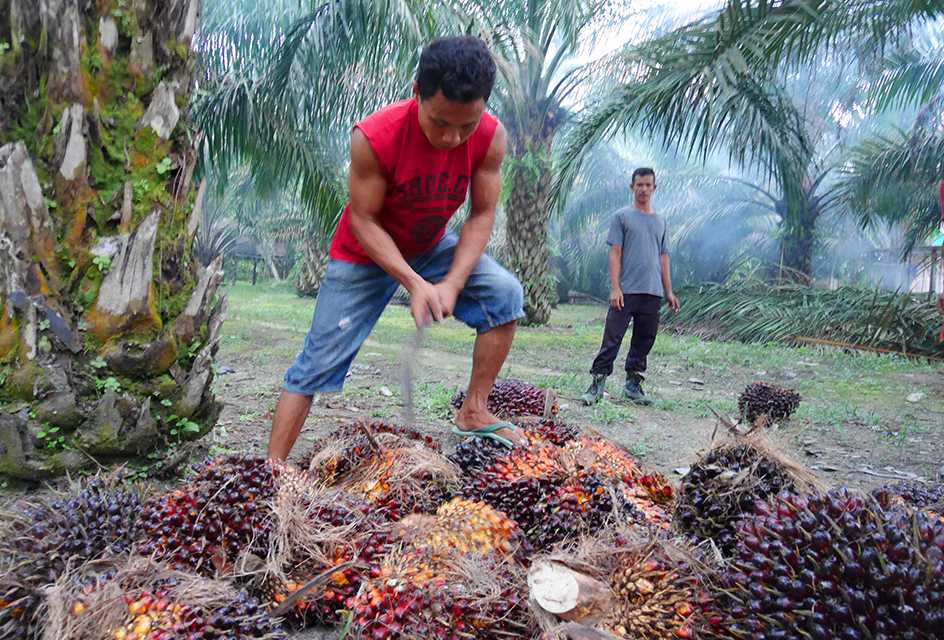
© WWF Indonesia
At the political level, we supported the Indonesian government by helping to advance the country’s climate commitments and develop effective GHG mitigation strategies – the most important mechanisms in this context are the Nationally Determined Contributions (NDCs). As the palm oil sector is the main deforestation driver in Indonesia, we analysed what it takes to mitigate emissions from this sector. Our findings were discussed with different ministries and also the private sector, that will be the main implementer for new measures to be derived. After an extensive round of consultations the recommendations (e.g. halting conversion of forest area for palm oil or optimising agricultural practices) were handed over to the Indonesian government.
At the provincial level, we mainly worked in West Java, and also in major cities such as Jakarta, Bogor, Tangerang, Bandung, Cimahi, Surabaya, Sidoarjo and Malang. We engage with urban communities that help us convey our messages to the root level.
Our Results
Consumer Outreach
In 2020, we partnered with Kompas Radio Network and Nova.id to host communication, talk shows and workshops focused on amplifying these messages, allowing us to reach a large audience. We launched a consumer outreach campaign, “Beli Yang Baik” (“Eat the better”), in 7 cities, centred around six main messages:
Buy What You Need
Buy Local
Buy Natural
Choose Sustainable Products
Choose Ecolabels
Dispose Properly
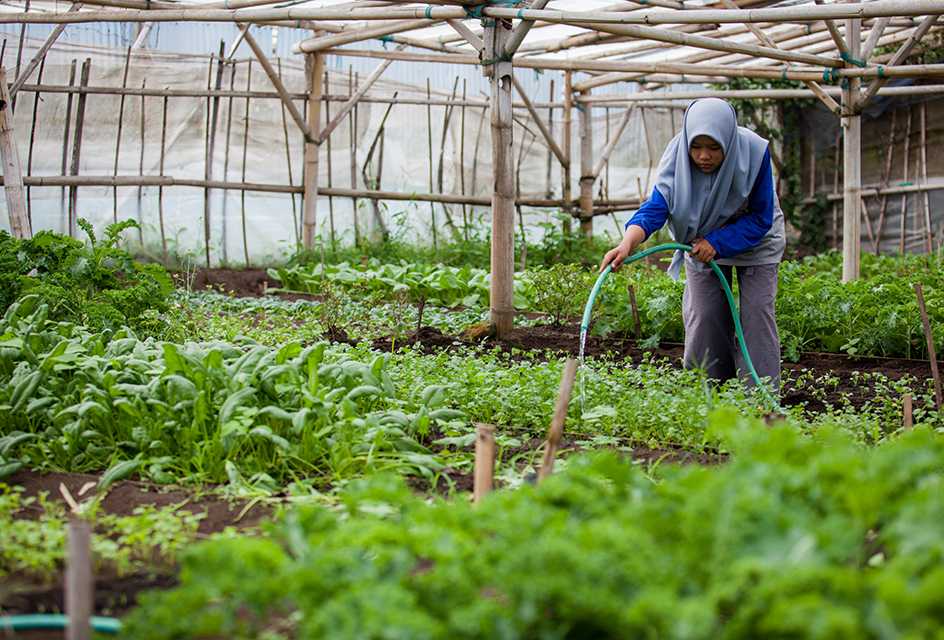
© WWF Indonesia
We also partnered with urban community groups like Earth Hour Communities and local youth groups to actively spread the message of sustainability and a green lifestyle. In particular, the Earth Hour community produced 9 podcast sessions with different speakers, each presenting one of the Beli Yang Baik messages.
With our community partner Burgreens, we ran the “Live Greener” campaign, where a series of public events were held to raise awareness and educate the public about the importance of sustainable food and waste-free living. The campaign also targeted office workers, through the “Live Greener Goes to Office” program.
In partnership with the Indonesia Organic Community, we are running the “Local for Local” campaign promoting consumption of local and organic produce and the avoidance of waste. Together with the community, we organize the annual Organic, Green and Healthy Expo (OGHExpo) in collaboration with Tokopedia, the largest online shopping platform in Indonesia.
© WWF Indonesia
Business Collaborations
We are partnering with the Indonesia Business Council for Sustainable Development (IBCSD) and are especially helping to shape its group “Green Lifestyle”. For this group, the membership mechanism is being shaped and targets are set out that align with SCP principles. It was also out of this group of companies that we developed our “Sustainable Sourcing Guidelines”.
The sustainable sourcing guidelines are the result of consultations and workshops with retailers and other stakeholders. The guidelines are meant to help downstream companies including retailers, hotels and restaurants on their path to sustainability, by showing ways to systematically switch business operations to sustainable sourcing.
We are working with the large retailer Superindo in the transition of their private label cooking oil from conventional to certified RSPO oil. In Indonesia, cooking oil made from palm oil is widely used, and offering an alternative helps to convey the importance of sustainable alternatives to consumers.
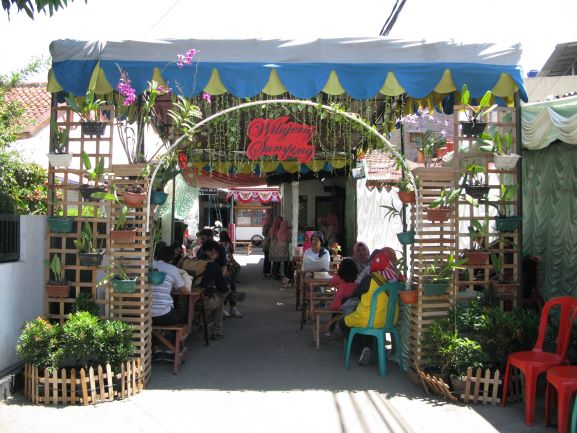
© WWF Indonesia
Beli Yang Baik Expo
In April 2020, we held the Beli Yang Baik Expo, a large online and offline event surrounding business innovations, consumer movements and policy engagement that highlighted successes of our work in Indonesia, too.
80 participating initiatives presented their ideas and work, along with 20 companies that were present with booths such as SuperIndo.
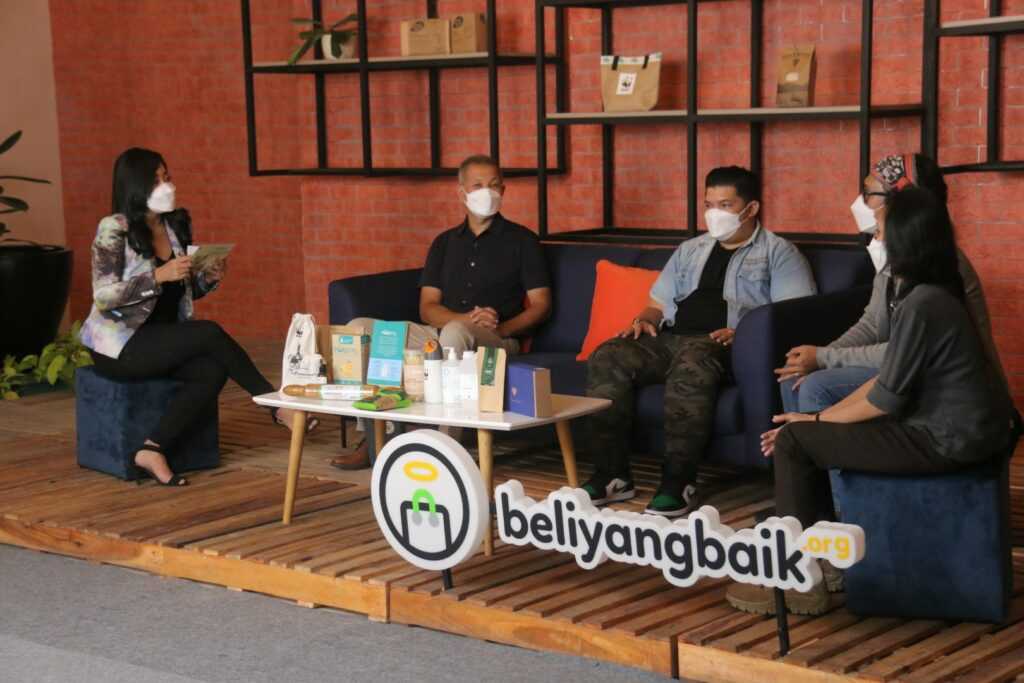
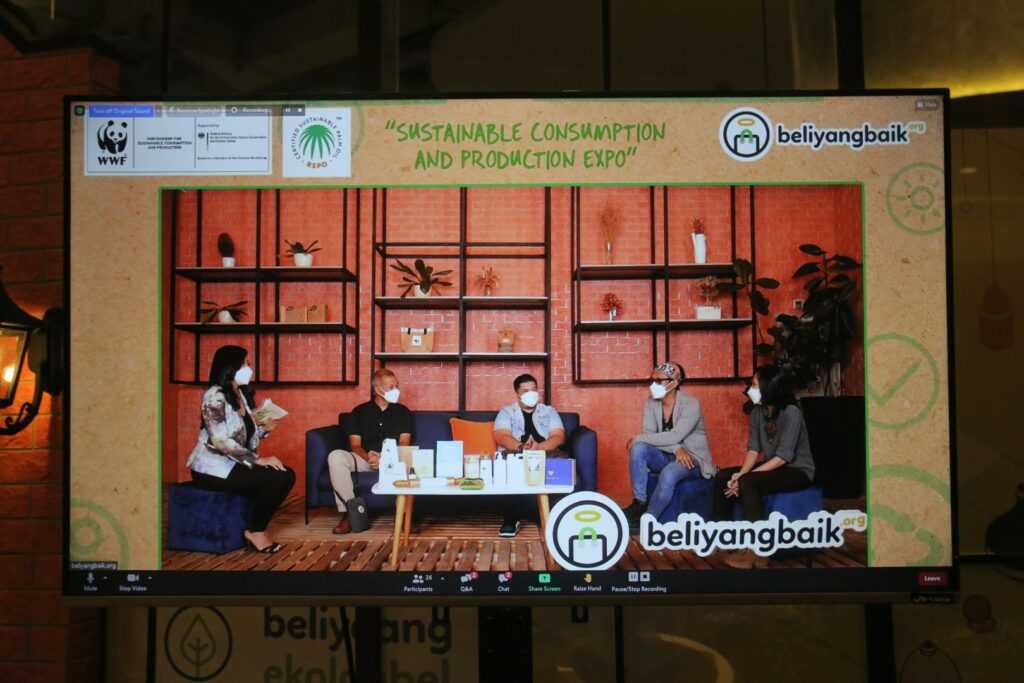
© WWF Indonesia
Project News
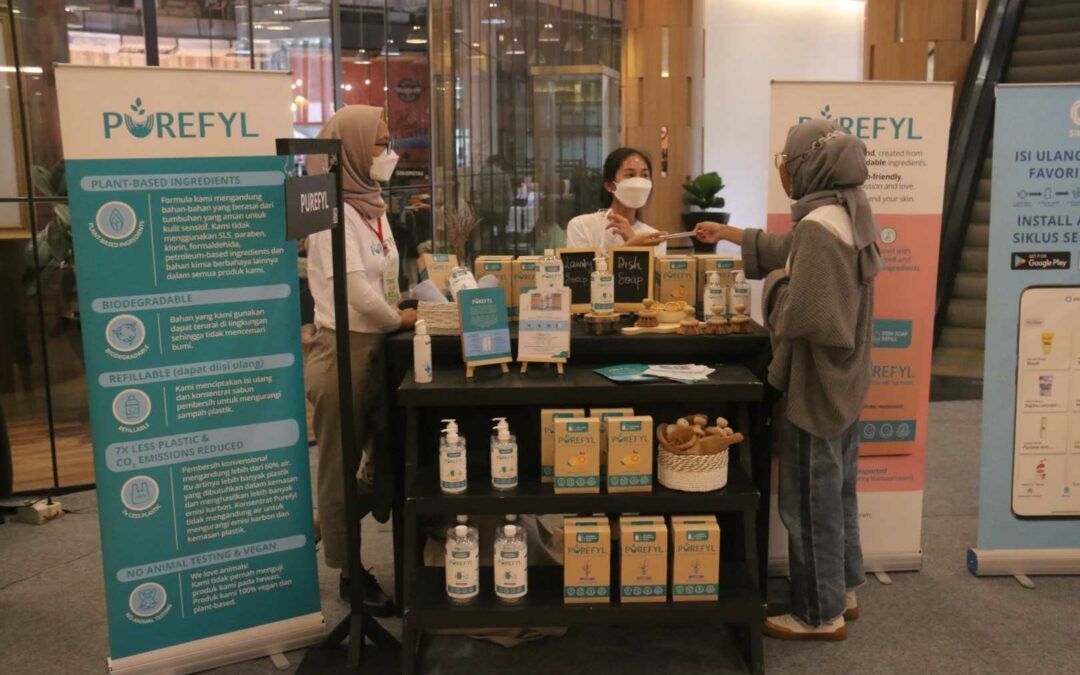
Beli Yang Baik Expo
Conscious consumers are increasingly concerned about living a more sustainable lifestyle. A "new thoughtfulness" and a change in attitude have been emerging over the past years all around the globe. As consumers, all of us have a huge impact in terms of what products...
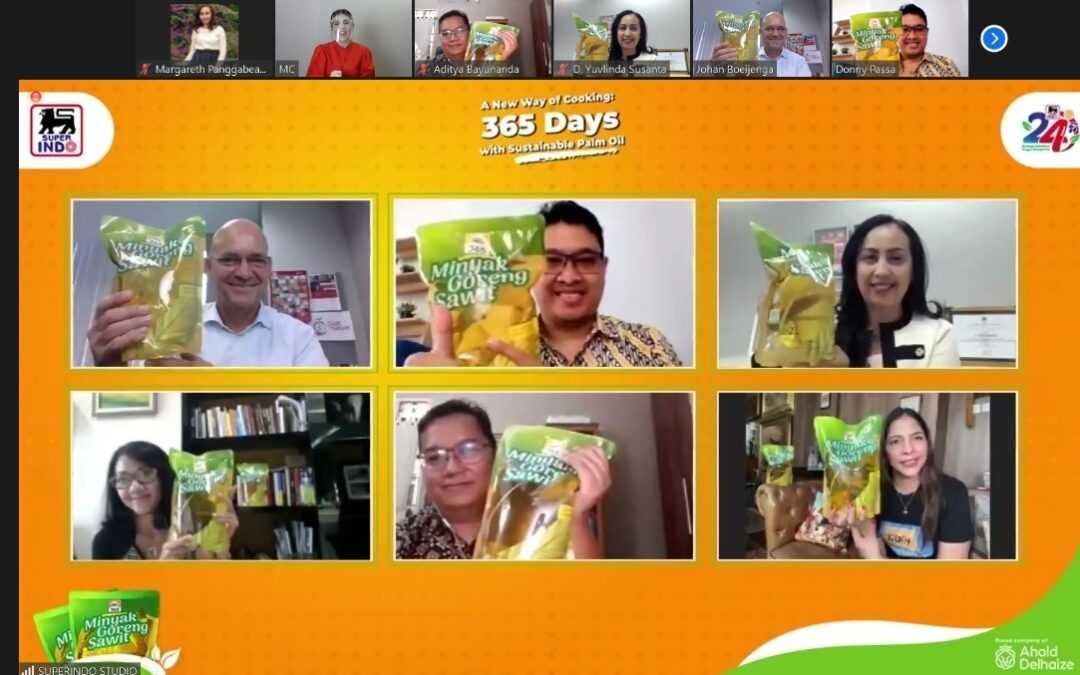
Launching Sustainable Cooking Oil in Indonesian Supermarket
The large Indonesian supermarket chain SuperIndo launches its first sustainable cooking oil, RSPO certified
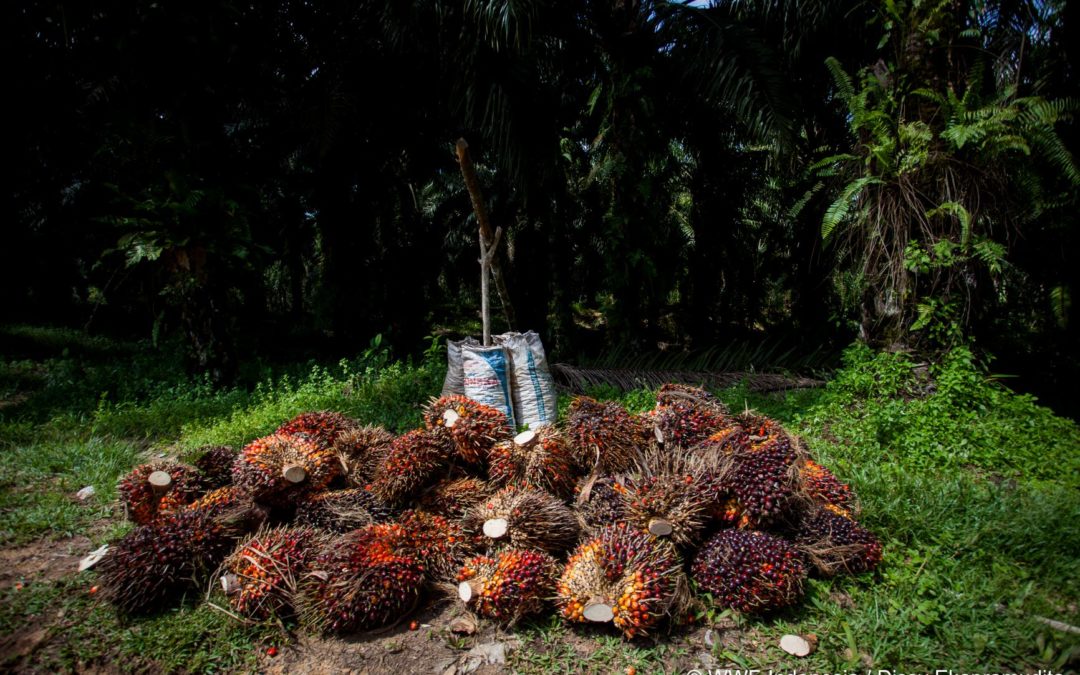
Sustainable Palm Oil Media Trips
As part of its sustainable consumption campaign, WWF-Indonesia organised media trips for raising awareness on sustainable palm oil production.

